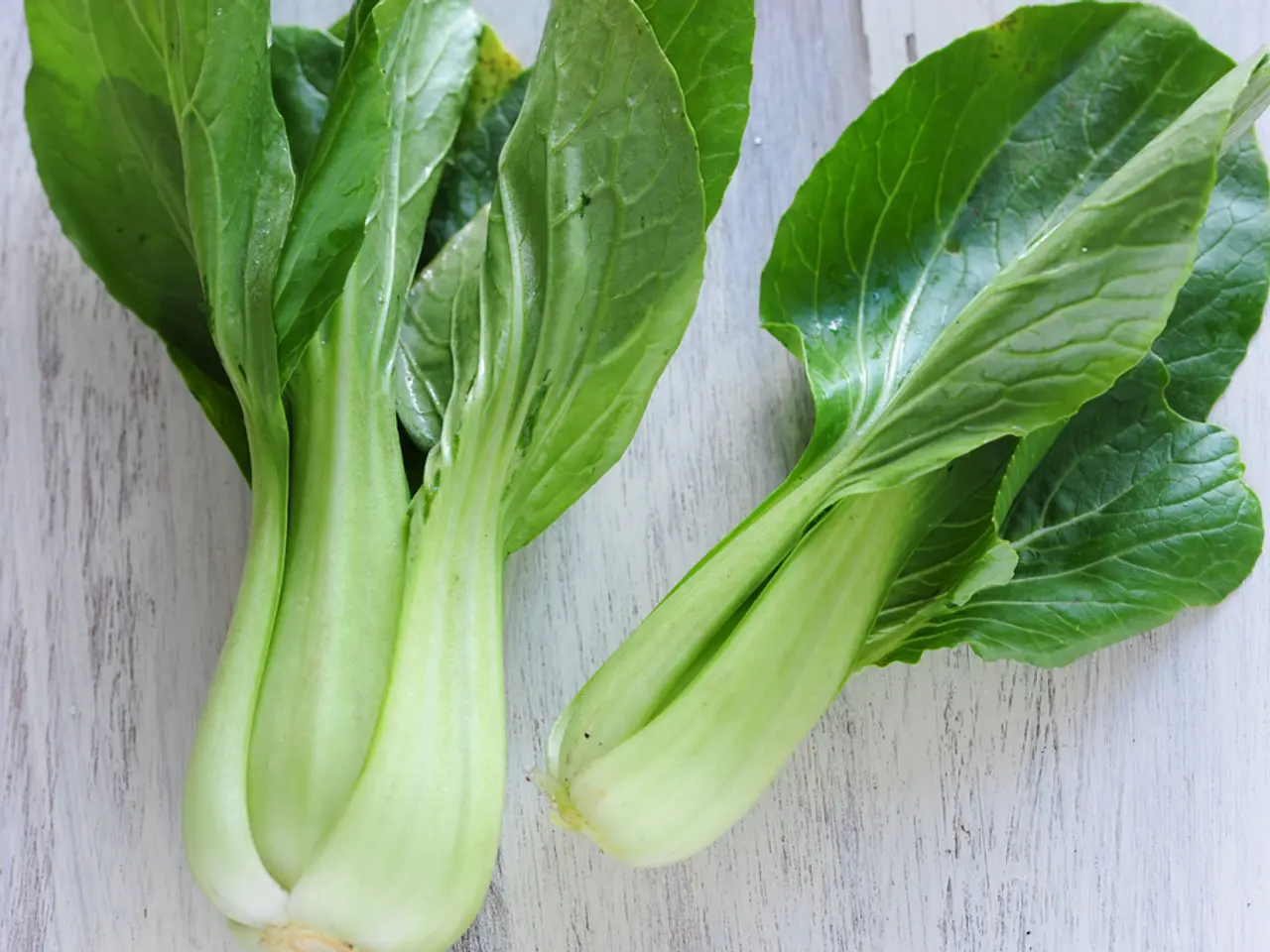Benefits of Zucchini for Health and Consumption Methods
Zucchini, a member of the Cucurbitaceae plant family, is a fruit that offers a myriad of health benefits. Known by other names such as courgette and baby marrow, this versatile vegetable is not only a low-carbohydrate alternative to pasta but also a rich source of essential nutrients.
Zucchini is packed with water and both soluble and insoluble fiber, which can help promote healthy digestion and reduce the risk of constipation. Beyond promoting digestive health, zucchini offers several additional benefits.
Supports Immune Health
Zucchini contains vitamin C, a powerful antioxidant that helps strengthen the immune system and promotes healthy skin. Consuming zucchini may help reduce a person's risk of developing eye problems such as age-related macular degeneration (AMD) and cataracts.
Promotes Heart Health
The fiber, potassium, magnesium, and vitamin K in zucchini contribute to cardiovascular health by helping regulate blood pressure, lower cholesterol, and support heart function. Zucchini is also high in potassium, which can help lower blood pressure and reduce the risk of heart attack, heart failure, peripheral artery disease, stroke, and kidney failure.
Strengthens Bones
Zucchini provides vitamin K and manganese, both of which are important for bone health and density. These nutrients play a crucial role in bone metabolism and help maintain bone strength.
Improves Gut Microbiome
The fiber and phytochemicals in zucchini support gut health by fostering beneficial gut bacteria and acting as antioxidants. A healthy gut microbiome is essential for overall health and can help reduce the risk of various chronic conditions.
May Reduce Cancer Risk
Compounds like cucurbitacin B and E, lutein, zeaxanthin, enterolactone, and vitamin C in zucchini have been linked to a lower risk of breast cancer and potentially other cancers.
Versatility in Preparation
Zucchini can be eaten both raw and cooked and is a versatile fruit that can be added to soups, salads, stir-fries, and is a primary ingredient in ratatouille. Thinly sliced and grilled zucchini makes a good side dish, particularly when combined with olive oil and lemon juice.
To keep zucchini fresh and make it last longer, store them whole, dry, and in an open paper bag in the fridge. Blanched zucchini can be stored in the freezer for 12 months before they go bad.
Diets low in carbohydrates, such as those that use zucchini as an alternative to high-carbohydrate products, can improve blood sugar levels and may even allow some people with type 2 diabetes to reduce their medication. High-fiber diets, such as those that include zucchini, can help reduce a person's risk of developing coronary heart disease.
In conclusion, zucchini's rich nutrient profile contributes to immune function, cardiovascular health, bone strength, gut microbiome balance, and may have protective effects against certain cancers. Embrace the versatility of zucchini and incorporate it into your meals for a healthier, more balanced diet.
- Zucchini, a member of the Cucurbitaceae family, is not only a low-carbohydrate pasta alternative but also a rich source of essential nutrients that support heart health.
- The water and fiber in zucchini promote healthy digestion and reduce the risk of constipation, contributing to overall digestive health.
- Consuming zucchini may help strengthen the immune system due to its vitamin C content and potentially reduce the risk of developing eye problems like AMD and cataracts.
- Vitamin K and manganese in zucchini are essential for bone health and density, helping maintain bone strength and reduce the risk of certain medical-conditions like osteoporosis.
- The fiber, potassium, magnesium, and vitamin K in zucchini contribute to cardiovascular health by regulating blood pressure, lowering cholesterol, and supporting heart function.
- A healthy gut microbiome, fostered by the fiber and phytochemicals in zucchini, is essential for overall health and can help reduce the risk of chronic conditions such as diabetesmellitus.
- Compounds like cucurbitacin B and E, lutein, zeaxanthin, enterolactone, and vitamin C in zucchini have been linked to a lower risk of breast cancer and potentially other cancers.
- Zucchini's versatility in preparation allows for its inclusion in various healthy-diets, offering nutritional benefits and contributing to fitness-and-exercise and health-and-wellness goals through a balanced diet and proper nutrition.




